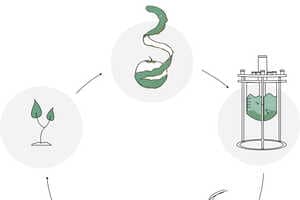Hemp-Based Polymer Alternatives





















A Team of Researchers are Creating Sustainable Polymers with Hemp
Colin Smith — October 31, 2024Researchers from Purdue University, the University of Connecticut, and Rensselaer Polytechnic Institute have collaborated to develop biopolymers made from hemp oil, offering a sustainable alternative to traditional petroleum-based plastics. The key innovation involves producing plastic from natural hemp oils, a process developed by Professor Gregory Sotzing at the University of Connecticut. These biopolymers exhibit strong functional properties and can be recycled and degraded, reducing greenhouse gas emissions. Hemp, a fast-growing crop that thrives in various locations, does not compete with food production and can help reduce reliance on petrochemical-derived plastics.
The interdisciplinary team's research is supported by a National Science Foundation (NSF) award, which aims to accelerate the adoption of hemp-based polymers in sectors such as electronics manufacturing and medical devices. The biopolymers created through this process have potential applications in biodegradable electronics and 3D-printed devices, addressing the growing issue of electronic waste. By utilizing a renewable resource like hemp, these biopolymers contribute to a circular economy, promoting sustainability and natural resource conservation.
This innovative approach to biopolymer production highlights the potential of plant-based materials to replace conventional plastics and reduce environmental impact. The collaboration between the three institutions underscores the importance of interdisciplinary research in developing sustainable solutions. The project also includes a workforce development component, engaging students from middle school through high school in hands-on experiences and training in skills like additive manufacturing, fostering interest in STEM and manufacturing careers.



